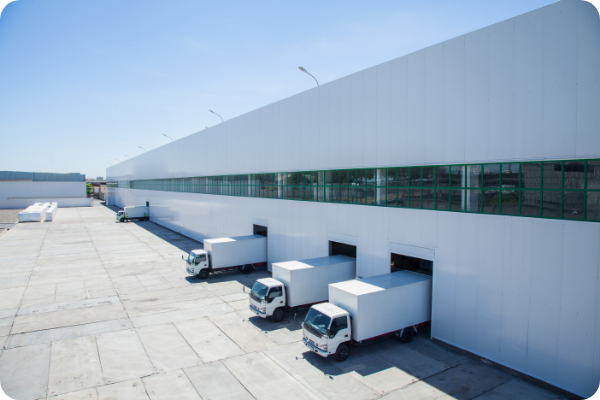In recent years the routes to market available to retailers and wholesalers have expanded and evolved beyond all recognition (compared to say 10 years ago); with the internet being the biggest single contributor to change. Consumers can now place orders 24/7 from a far greater range of sellers for the same or similar product, all competing on price and delivery lead times.
The sellers in turn place greater demands on their suppliers and logistics operations throughout the supply chain (whether they are in-house and/or third-party logistics doesn’t matter).
As distribution centres are put under increasing pressure to meet customer demands in shorter delivery windows, drivers are put under increasing pressure to deliver on time.
As vehicles wait to be loaded and unloaded, with frequent delays, drivers are put under pressure.
Whilst not all of the issues above can be instantly solved there are things that businesses can do at an operational logistics level to relieve pressure on the drivers and in fact the entire logistics operation.
What I observe regularly with many of the companies that I visit is that lack of planning and process for order picking, consolidation, despatch and transport planning. Far worse than a lack of any process or procedures is the lack of compliance with the existing processes and procedures that are supposedly in place, and worse still the non-compliance is neither monitored nor managed. Lack of process at the loading/unloading point directly delays drivers; the very people who then receive the complaint at the point of delivery or collection for either being late or with the wrong order.
It is not surprising that the job as a driver, which is impacted by so many other parts of the logistics and transport operations, all of which are out of the drivers control, is perhaps not as popular as we want it to be.
It is down to companies to put it right through improved transport and logistics operations process, planning and management. Most of the operational issues have evolved and not perhaps had the focus they need as the sole focus has been to satisfy the consumer at whatever the cost. The amount of times I hear “our business isn’t broken, we get our product out the door and delivered to the customer, but we feel we could probably do it better”. In most cases this is true and doing it better is exactly the point.
DON’T PLAN TO FAIL
For example; If the order cut off time for same day despatch is 5pm, then that is the order cut off time because that determines the order picking routines, consolidation, marshalling, vehicle loading and departure times and subsequent delivery times in the current logistics operation. If orders are frequently taken later than the current ‘cut-off’ time, then change the cut-off time to reflect that. This will then be the point in time from which the rest of the logistics and distribution operations can be planned accordingly. Once the logistics network is planned against different criteria then the pick, pack and despatch operations and processes need to be changed to ensure they meet the distribution requirements.
Any plan needs to have some flexibility built into it, so make allowances for admin/ paperwork and vehicle checks at the beginning and end of shift times for drivers and be realistic on travel, rest and load/unload times.
Transport resources and the infrastructure that supports them, including the warehouse and distribution centre processes, need to be periodically reviewed to reflect customer service levels, sales volumes and product portfolio changes over time. If you are using transport and operations planning and modelling tools (either for daily planning or strategic transport network design) then allow for a lower efficiency percentage, as if you base your plans on calculations at 100% efficiency you will be planning to fail.
Correctly planning your logistics network operations, implementing the right processes to meet your plans, managing the compliance to those processes and showing appreciation to the job your drivers do will all play a part in determining the fate of the transport and haulage industry.
Author Gideon Hillman FCMI FCILT is a Logistics Industry professional with 24 years’ experience and Managing Director of one of the leading Logistics Consultancies in the UK. He is a Chartered Fellow of the Institute of Logistics and Transport, a Fellow of the Chartered Management Institute and a member of the Supervisory Board for UKWA (United Kingdom Warehousing Association).














